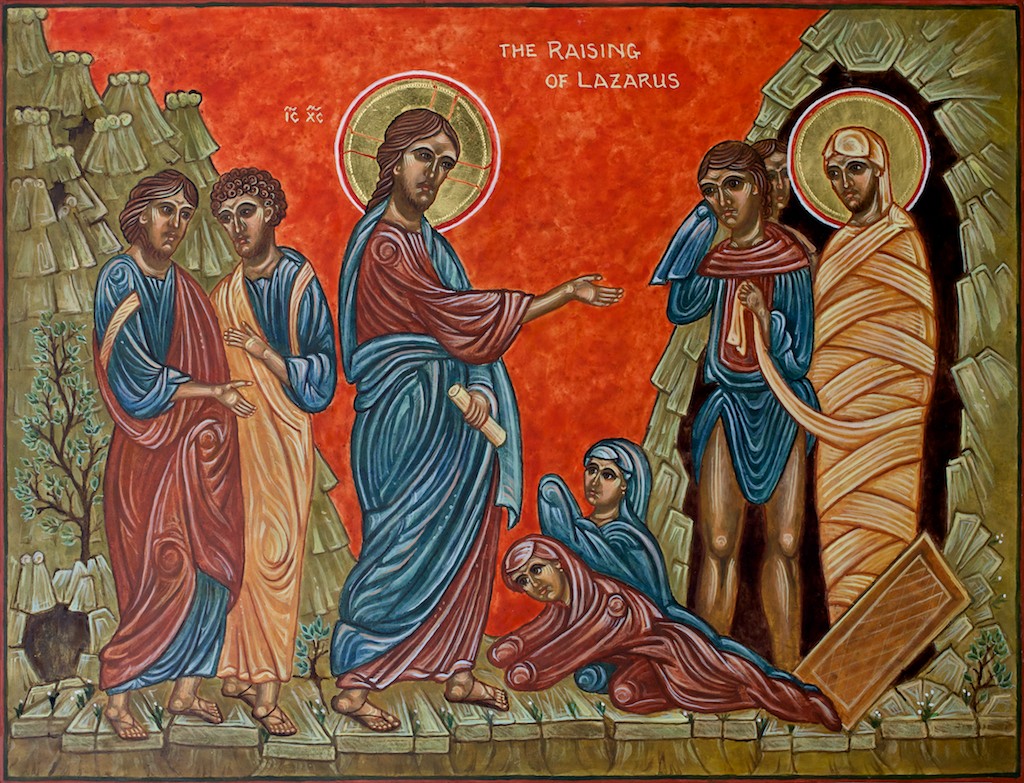Jesus and Beelzebul
Luke 11:14-23
14 Now he was casting out a demon that was mute; when the demon had gone out, the one who had been mute spoke, and the crowds were amazed. 15 But some of them said, “He casts out demons by Beelzebul, the ruler of the demons.” 16 Others, to test him, kept demanding from him a sign from heaven. 17 But he knew what they were thinking and said to them, “Every kingdom divided against itself becomes a desert, and house falls on house. 18 If Satan also is divided against himself, how will his kingdom stand? —for you say that I cast out the demons by Beelzebul. 19 Now if I cast out the demons by Beelzebul, by whom do your exorcists cast them out? Therefore they will be your judges. 20 But if it is by the finger of God that I cast out the demons, then the kingdom of God has come to you. 21 When a strong man, fully armed, guards his castle, his property is safe. 22 But when one stronger than he attacks him and overpowers him, he takes away his armor in which he trusted and divides his plunder. 23 Whoever is not with me is against me, and whoever does not gather with me scatters.
Observations & Reflections
 The story of Jesus being accused of casting out demons in the name of the devil is also told in Mark 3:19-30 and Matthew 12:22-33. The context of Matthew and Mark are important for this story because in both Matthew and Mark, Jesus responds to His accusers by turning the tables and accusing them, of the unforgivable sin. The unforgivable sin has drawn much controversy over the centuries but it’s really nothing as serious as it sounds. First, let us look at the context.
The story of Jesus being accused of casting out demons in the name of the devil is also told in Mark 3:19-30 and Matthew 12:22-33. The context of Matthew and Mark are important for this story because in both Matthew and Mark, Jesus responds to His accusers by turning the tables and accusing them, of the unforgivable sin. The unforgivable sin has drawn much controversy over the centuries but it’s really nothing as serious as it sounds. First, let us look at the context.
The context of the setting was that Jesus was performing miracles directly in front of the Pharisees and religious leaders. All kinds of miracles were being performed. He had reach the Jerusalem area already except in Mark, who told of the events happening in Galilee int the presence of his kin and “the scribes who came down from Jerusalem“. Matthew does not give a location for these events. So Jesus was in lion’s den, so-to-speak. He was being heavily observed by the religious leaders and scribes.
Upon witnessing the miracles, the scribes and pharisees accused Jesus of being demon possessed and casting out demons in the name of Beelzebul. Beelzebul was a name given to Satan, but originally was a reference to the old god of Ekron.
2 Now Ahaziah had fallen through the lattice of his upper room in Samaria and injured himself. So he sent messengers, saying to them, “Go and consult Baal-Zebub, the god of Ekron, to see if I will recover from this injury.”
3 But the angel of the Lord said to Elijah the Tishbite, “Go up and meet the messengers of the king of Samaria and ask them, ‘Is it because there is no God in Israel that you are going off to consult Baal-Zebub, the god of Ekron?’
(2 Kings 1:2-3)
While the original Ugaritic title in Ekron would have translated into “prince of the gods” or “prince god”, it was eventually turned into a pun by the Israelites because it’s name in Hebrew would mean, the lord of flies,” or, as others think, “the lord of dung,” or “the dung-god.” Thus, as an insult to Satan, he was sometimes called Beelzebul. Anyone accused of being under the power of Beelzebul would have known that they were not just being accused of something terrible but that they were being insulted at the same time.
Naturally, Jesus was not pleased with the power of the Holy Spirit being attributed to the dung-god. In fact, Jesus was likely very peeved. This is why He issues the degree that anyone who blasphemes the Holy Spirit (by witnessing the miracles and then attributing it to demons) will not be forgiven. In fact, Jesus says that they won’t be forgiven in this age or the next age…. indicating a possible post mortem opportunity to repent.
If you or someone you know is worried that they committed the unforgivable sin then don’t worry. Unless you see Jesus casting out demons and healing the sick right in front of you, and then you insult Jesus and accuse Him of using the power of something other than the Holy Spirit, you have not committed the unforgivable sin.
[Featured image of Jesus beckoning Lazarus to rise from the grave. Icon ]
